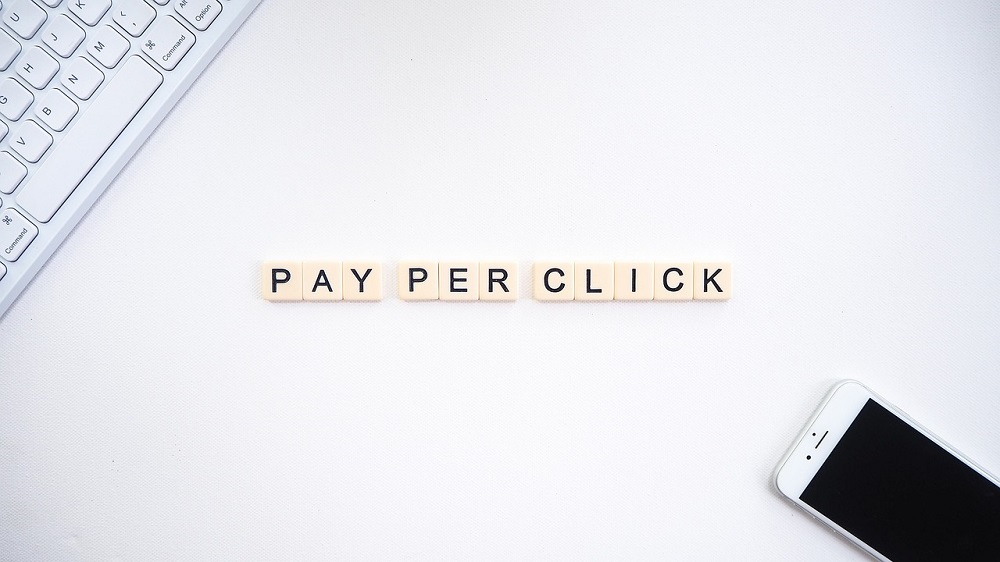
If you’ve ever wandered through the labyrinth of online marketing, you’ve probably stumbled upon the acronym “PPC.”
But what does PPC stand for, and how does it work its digital magic?
In this article, we’ll venture deep into the space of Pay-Per-Click advertising, demystify its inner workings, and reveal why it’s a powerhouse in the world of online marketing.
Why Is PPC Important?
Before we dive into the nitty-gritty of PPC, let’s grasp its significance.
PPC, or Pay-Per-Click, is a digital marketing strategy that allows advertisers to pay a fee each time their ad is clicked. It’s a bit like a bidding war in a virtual marketplace, where advertisers compete for prime real estate on search engines and social media platforms.
So, why is PPC important, you ask?
Well, it offers businesses a fast track to visibility. You don’t need to wait for months to climb the organic search results ladder. PPC thrusts your brand into the spotlight instantly.
It’s a bit like turning on a light switch in a dark room. You pay, and voilà, your ad shines right at the top!
How Does PPC Advertising Work?
Now, let’s dig into the mechanics of PPC advertising. At its core, PPC is about connecting advertisers with potential customers. It’s like a matchmaker for the digital age. When a user types a query into a search engine, PPC ads appear above or below the organic search results.
Here’s where the magic happens. Advertisers bid on specific keywords relevant to their business. It’s like placing bets in a high-stakes poker game. The bid amount determines your ad’s position. The higher the bid, the closer you are to that coveted top spot.
But wait, there’s a twist!
You don’t pay for ad space upfront. You only pay when someone clicks on your ad. It’s as if you’re hosting a party, and you only pay the caterer based on the number of guests who actually show up.
This “pay as you go” model is what makes PPC a cost-effective marketing strategy.
The difference between PPC, SEM, and SEO
Now, let’s untangle the web of acronyms. PPC, SEM, and SEO often swim in the same sea, but they’re distinct fish. PPC is like the speedboat, SEM is the entire ocean, and SEO is the submarine.
- PPC (Pay-Per-Click)is all about paying for clicks on your ads, as we’ve seen. It’s quick, immediate, and can generate instant results.
- SEM (Search Engine Marketing), on the other hand, casts a broader net. It encompasses PPC but also includes SEO efforts, making sure your website ranks well organically in search results. It’s like using both a fishing net and a fishing rod.
- SEO (Search Engine Optimisation)is a long-term game. It’s about tweaking your website to climb the organic search rankings. Picture it as planting seeds; you nurture them, and over time, they grow into beautiful, organic traffic trees.
What are Google Ads?
When you think of PPC, you often think of Google Ads. Google Ads is the grandmaster of the digital advertising arena, where billions of searches happen daily. It’s like the buzzing heart of the internet.
Key Components of Google PPC Ads
To master PPC, you need to understand the inner workings of Google Ads. There are three key components to it: keywords, ads, and landing pages. These are like the gears in a well-oiled machine.
Keywords are the lifeblood of your PPC campaign. They are the words or phrases that trigger your ad when users search. It’s as if you’re speaking the same language as your audience.
Your ad is the face of your campaign. It’s the shop window, the virtual handshake, and the first impression, all rolled into one. It should be eye-catching and enticing, like a siren luring sailors.
The landing page is where the real action happens. Once a user clicks your ad, they arrive at your landing page. It’s like inviting someone into your store after they’ve admired your shop window. The landing page should deliver what the ad promises, like a magician pulling a rabbit from a hat.

Types of PPC Ads
It’s important to say that you’re not limited to a single type of ad. Think of it as having a palette of colourful options to paint your digital masterpiece.
Each type serves a unique purpose, allowing you to tailor your message to your audience with precision and finesse.
Text Ads
These are the workhorses of PPC. Picture them as the strong, silent types. Text ads consist of a compelling headline, a brief description, and a URL. They are the bread and butter of PPC, appearing on search engine results pages like signposts on a digital highway.
With their concise text and the power of words, text ads are like a succinct poet, conveying a message with elegance.
Display Ads
If text ads are the poets, display ads are the visual artists. These ads are all about imagery and creativity. They can appear on various websites, including the Google Display Network, and they’re designed to capture attention with eye-catching graphics.
Display ads are like gallery paintings that tell a story in a single glance. They’re perfect for building brand awareness and making a visual impact.
Shopping Ads
For e-commerce businesses, shopping ads are the golden ticket. They showcase your products with images, prices, and brief descriptions, making them ideal for online shopping platforms.
It’s like having a digital storefront right in the search results. Shoppers can see what you offer at a glance, making it easier for them to decide and click, bringing them closer to the checkout line.
Video Ads
Videos are the superstars of the digital world, and video ads harness their power. They can appear on YouTube and other video-sharing platforms, offering a chance to engage your audience visually and emotionally.
It’s like having your own mini-movie premiere. Video ads are immersive, like diving into an ocean of storytelling, and they can be a game-changer for your brand.
App Promotion Ads
If you’re in the business of mobile apps, app promotion ads are your trusted sidekick. These ads are designed to drive installations of your mobile app, and they can appear on the Google Play Store and other app-related platforms.
They’re like the ticket sellers at the entrance to an amusement park, luring users to join in on the fun by downloading your app.
| Ad Type | Where they are best used | Effectiveness |
| Text Ads | Search Engine Results Pages | Text ads are versatile and suitable for various industries. They are an excellent choice for promoting products, services, and driving website traffic. |
| Display Ads | Websites, Apps, Social Media | Display ads are great for brand exposure and visual storytelling. They can be effective for reaching a broad online audience and creating brand awareness. |
| Shopping Ads | E-commerce Platforms | Shopping ads are tailor-made for e-commerce businesses, ideal for showcasing products, prices, and driving online sales. They appear in search results and on shopping platforms. |
| Video Ads | Video-Sharing Platforms | Video ads are perfect for engaging an audience with visual content. They are particularly effective for industries where demonstration and storytelling are essential, like fashion and travel. |
| App Promotion Ads | Mobile App Platforms | App promotion ads are designed to boost app downloads. They are crucial for mobile app developers looking to increase their user base and expand their reach in the mobile app market. |
Each type of PPC ad has its own unique strengths and applications. To succeed in the world of PPC, you’ll want to consider which ad types align best with your business goals. Whether you’re aiming to drive website traffic, boost sales, or increase brand awareness, there’s a PPC ad type that’s tailor-made for the task.
So, think of PPC ad types as tools in your digital toolbox, and wield them strategically to achieve your marketing objectives.
PPC Keyword Research
The success of your PPC campaign often hinges on the quality of your keyword research. It’s like searching for buried treasure, except the treasure is a list of words and phrases that potential customers use when they’re looking for what you offer.
To master this art, you need to think like a detective, deciphering the secret language of your audience.
Effective keyword research involves a delicate balance.
On one hand, you want keywords that are highly relevant to your business. These are the keywords that ensure your ad gets in front of the right people, like finding the right address in a bustling city.
On the other hand, you need to consider search volume and competition. Highly competitive keywords are like crowded streets, and getting noticed there can be tough. Long-tail keywords, on the other hand, are like niche markets with less traffic but more specific customers.
It’s a bit like sifting through a vast library, trying to find the books that your target audience is most interested in. Keyword research tools become your trusty librarian, helping you identify those valuable keywords.
And remember, the goal is not just to attract clicks but to attract the right clicks, from people who are genuinely interested in what you offer.

PPC Campaign Management
Managing a PPC campaign is akin to conducting a grand orchestra. It requires a skillful blend of monitoring, analysis, and optimisation to ensure all elements are in perfect harmony.
Just like a conductor keeps an eye on every section of the orchestra to ensure the music flows seamlessly, a PPC campaign manager watches over every aspect of your campaign to make sure it performs at its best.
Campaign management is an ongoing process, not a set-and-forget affair. It’s like tending to a garden; you can’t just plant the seeds and expect them to flourish without care and attention. Here’s where you need to pay close attention to your Quality Score.
Think of it as the report card for your PPC campaign. It measures the alignment of your keywords, ads, and landing pages. The better they work together, the higher your Quality Score, and the less you pay for each click.
Ad extensions are your secret weapons in the world of PPC campaign management. They’re like adding extra pages to your story. Ad extensions allow you to provide additional information and make your ad more appealing.
Whether it’s including your phone number for a quick call, displaying your store’s location, or showcasing specific product details, ad extensions give you a chance to stand out in the crowded ad space.
Best Pay-Per-Click Platforms
When you’re embarking on a PPC journey, it’s crucial to know which platforms offer the most bang for your buck. Google Ads and Microsoft Ads are the giants of the PPC world. They’re like the bustling markets of the digital advertising space, where billions of searches occur daily.
Google Ads, with its expansive reach, is like the bustling heart of the internet. It’s where you can reach a global audience or target your local community.
Microsoft Ads (formerly known as Bing Ads), on the other hand, serves a significant share of the search engine market. It’s like a cozy corner shop, catering to a slightly different audience but offering valuable exposure.
Each platform has its unique strengths and quirks. The choice of platform depends on your target audience, budget, and advertising goals. Google Ads and Microsofts Ads provide the tools you need to fine-tune your campaigns and reach your intended audience effectively.
Best Pay-Per-Click Platforms
To truly excel in the world of PPC marketing, you need to adhere to some golden rules, much like a seasoned athlete follows a strict training regimen:
- Continuous Monitoring: Keep a vigilant eye on your campaigns, much like a watchful owl in the night. Regularly check your ad performance, budget allocation, and keyword effectiveness.
- A/B Testing: Experiment with different ad copies, landing pages, and calls to action to find what resonates most with your audience. It’s like a chef testing various ingredients to create the perfect dish.
- Quality Score: Ensure your keywords, ads, and landing pages align like stars in a constellation. The better they mesh, the higher your Quality Score, resulting in lower costs per click and better ad positions.
- Ad Extensions: Use ad extensions to provide extra information and enhance your ad’s appeal. Think of them as the bonus features on a DVD that make the movie even more enjoyable.
These best practices are like the secret recipe for success in the PPC world. They ensure your campaigns stay efficient and cost-effective, all while delivering better results.

Get More Out of Your PPC Campaigns with DesignQ
Navigating the challenges of being a small business owner can be like embarking on a quest to connect with your ideal audience.
In Parramatta, Australia, businesses face these very challenges. Having collaborated with numerous Parramatta-based enterprises, we’ve pinpointed the precise pain points in the area of digital marketing.
Often, business owners grapple with the daunting task of engaging their target audience and lack the know-how to effectively promote their brand in the vast online landscape.
But what sets DesignQ apart is our arsenal of tailored PPC services. We understand that Pay-Per-Click advertising can be a game-changer. Harnessing the power of data-driven insights and cutting-edge strategies, we create PPC campaigns that deliver tangible results.
We don’t just identify the challenges; we provide solutions. Our PPC services are designed to be the guiding star on your digital marketing journey. Say goodbye to the guesswork and confusion, and let data-driven strategies lead the way.
With DesignQ, your business can not only connect with your target audience but also watch your brand thrive in the vast online arena.
Contact us to learn more.
Conclusion
PPC advertising is not just a marketing strategy; it’s an art and a science rolled into one. It offers the power of instant visibility and the potential for a high return on investment.
By understanding the intricacies of keyword research, effective campaign management, and best practices, you can harness the full potential of PPC to promote your business and reach new heights in the digital space.
Embark on your PPC journey with confidence and watch your online presence soar like a digital eagle in the vast sky of the internet.










